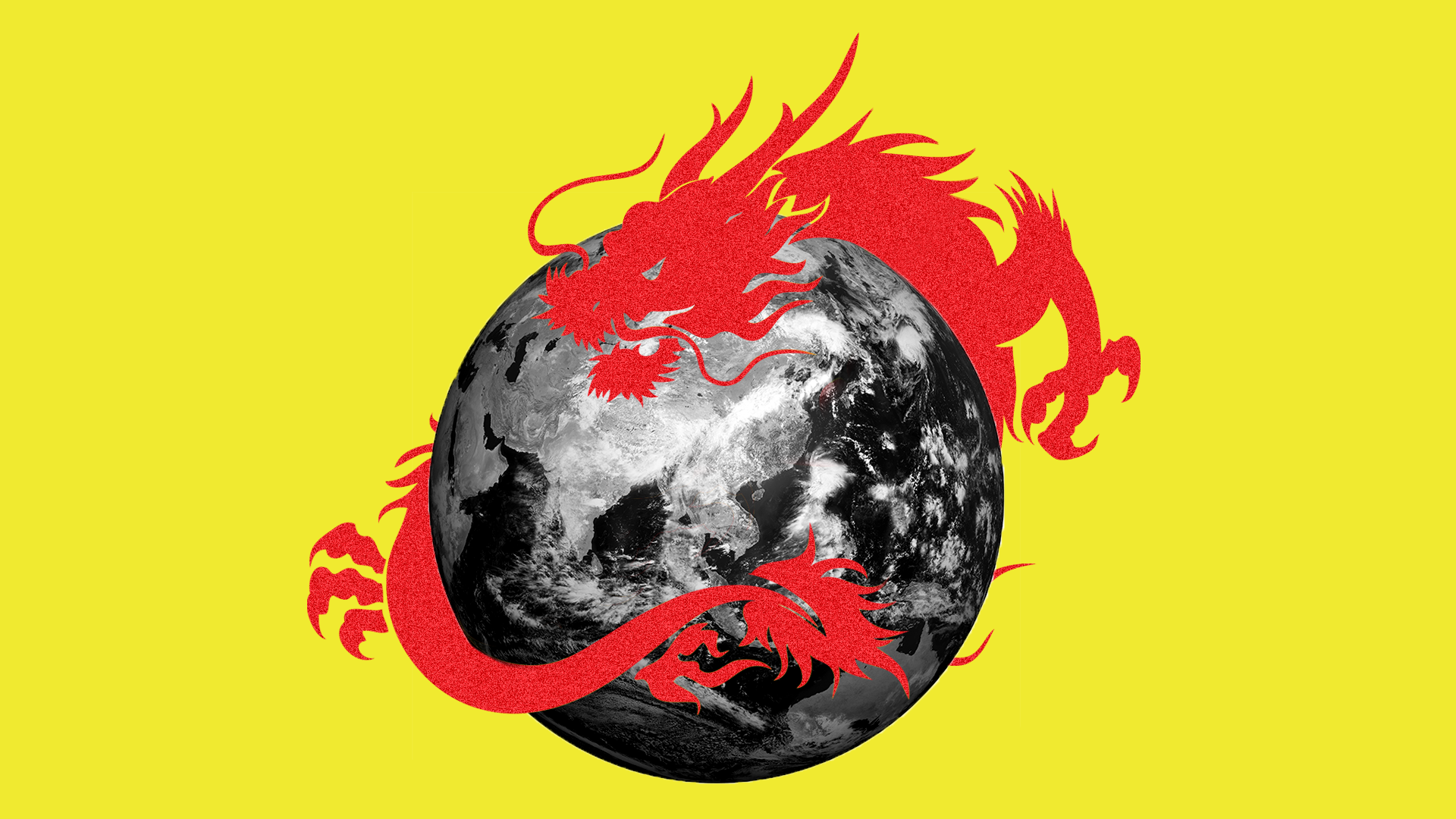A world of rising risks and little leadership
Add Axios as your preferred source to
see more of our stories on Google.

Illustration: Rebecca Zisser/Axios
The era of American dominance is "definitively over," war with China is growing more likely, and world leaders are risking long-term security by refusing to face challenges like climate change, according to a new Atlantic Council report titled "Global Risks 2035."
The big picture: Author Mathew Burrows, a CIA veteran who previously steered long-term risk forecasts for the U.S. intelligence community, writes that the world is slipping into a "new bipolarity" defined by competition between the U.S. and China.
Many in Washington remain convinced the U.S. can only ensure its security as a singular superpower, though, and a rising China believes the U.S. is determined to hold it back.
- Climate change, disruptive technologies and rising inequality feature prominently in Burrows' analysis of the greatest risks facing the world in the next 15 years.
- But hanging over everything is the fundamental restructuring of global power as China grows more influential and seeks to redefine the world order to suit its interests.
The U.S. has so far been unwilling to adapt to the changing global reality, Burrows tells Axios. No other country would imagine it could "only ensure national security through primacy," he says.
"A generation that has grown up with the U.S. as all-powerful suddenly has to change tack and think about how you coalition build. You have to get partners and allies and make your case."
Meanwhile, most in China are convinced the U.S. will never accept China as an equal.
- As walls go up between the countries, "misunderstandings can begin to develop," Burrows says.
- He says a World War I scenario, in which neither side necessarily wants war but "there is also no one putting the brakes on," looks increasingly possible.
What to watch: Burrows writes that a sliding China could actually be a bigger risk than a booming one.
- A Chinese economic downturn could be destabilizing domestically, he says, because the Communist Party "has tied its legitimacy to year-after-year of increasing opportunities and very steady growth."
- But given China's central role in the global economy, and the already rising tides of "protectionism and political destabilization," it could be a deeply destabilizing event globally, Burrows warns.
The big picture: Most of the worst-case scenarios Burrows envisions are based not on an unexpected event, but on failure to act on entirely foreseeable challenges like struggling middle classes in the West, growing mountains of debt and climate change.
- "These things are fixable," he says, but they require leadership and a sense of purpose that eclipses the partisan divide. Burrows doesn't sound particularly optimistic.
The bottom line: "Is there any way to stop the descent?" Burrows writes in the report. "No leader believes he or she has the means to stop it. At home in all the major powers, growing populism, nativism, and jingoism come to the fore, militating against saving the world."
Go deeper: Read the report.
